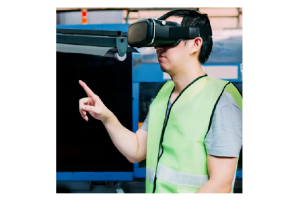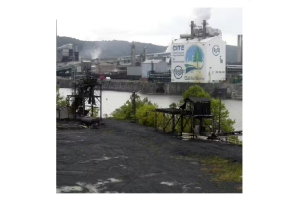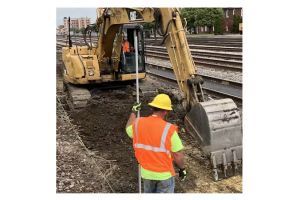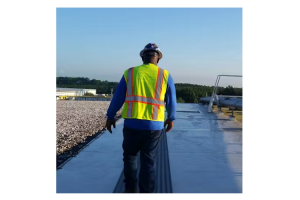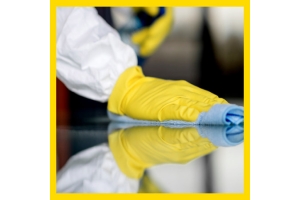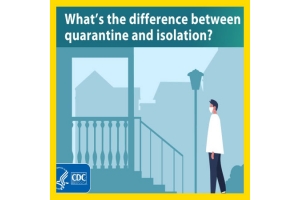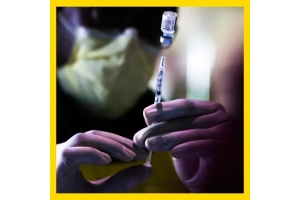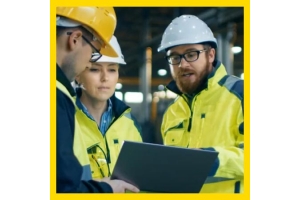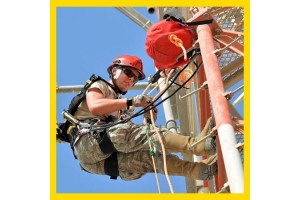Currency
December 29, 2022

On November 28, the National Institute for Occupational Safety and Health (NIOSH) asked for public comment on its program for certifying approved respiratory protection devices.
NIOSH is authorized by the Occupational Safety and Health Act of 1970 and Mine Safety and Health Amendments Act of 1977 to test and approve respirators used by construction workers, miners, painters, asbestos removal workers, fabric mill workers, firefighters, and other workers. The Environmental Protection Agency (EPA) and Nuclear Regulatory Commission (NRC) also require the use of NIOSH-approved respirators.
The institute separately tests respirators used in health care under a memorandum of understanding with the Food and Drug Administration (FDA).

Respiratory protection manufacturers apply for NIOSH approval using the Standard Application Form for the Approval of Respirators (SAF), now in its ninth version. The institute is seeking input on the information collected from manufacturers on the SAF and during the approval process.
Respirator manufacturers had estimated submitting an average of 140 applications each year over the years 2020–2023. The institute received a total of 375 applications in calendar year 2019 and 300 applications in 2020. NIOSH reported receiving an increased number of applications due to the creation of a new respirator class, PAPR100, as well as increased certification requests due to the COVID-19 pandemic.
The form collects information from manufacturers about factors likely to affect respirator performance and use, such as respirator design, manufacturing methods and materials, quality assurance plans and procedures, and user instruction and draft respirator labels.
Applicants also are required to provide test data showing that the manufacturer is able to ensure the respirator is capable of meeting requirements specified in the respirator regulations. Manufacturers of currently approved respirators also are subject to site audits by the institute. Audits may occur periodically, typically every second year, or because of a reported issue.
On November 28, the institute also announced two meetings, including:
NIOSH also announced a deadline extension for nominations to the World Trade Center (WTC) Health Program Scientific/Technical Advisory Committee (WTCHP-STAC). The deadline has been extended from November 14 to December 30.
NIOSH administers the WTC Health Program authorized by the James Zadroga 9/11 Health and Compensation Act of 2010 and maintains the WTC Health Registry with the New York City Health Department.
NIOSH’s WTC Health Program conducts or sponsors research into physical and mental health conditions that may be related to the September 11, 2001, terrorist attacks and improves diagnosis and treatment of WTC-related health conditions for which there has been diagnostic or treatment uncertainty.
The top certified conditions of survivors of the 9/11 terrorist attacks are chronic rhinosinusitis, gastroesophageal reflux disease (GERD), asthma, cancers, and sleep apnea. The top five certified cancers among survivors are non-melanoma skin, prostate, breast—female, melanoma of skin, and lymphoma.
NIOSH is authorized by the Occupational Safety and Health Act of 1970 and Mine Safety and Health Amendments Act of 1977 to test and approve respirators used by construction workers, miners, painters, asbestos removal workers, fabric mill workers, firefighters, and other workers. The Environmental Protection Agency (EPA) and Nuclear Regulatory Commission (NRC) also require the use of NIOSH-approved respirators.
The institute separately tests respirators used in health care under a memorandum of understanding with the Food and Drug Administration (FDA).

Respiratory protection manufacturers apply for NIOSH approval using the Standard Application Form for the Approval of Respirators (SAF), now in its ninth version. The institute is seeking input on the information collected from manufacturers on the SAF and during the approval process.
Respirator manufacturers had estimated submitting an average of 140 applications each year over the years 2020–2023. The institute received a total of 375 applications in calendar year 2019 and 300 applications in 2020. NIOSH reported receiving an increased number of applications due to the creation of a new respirator class, PAPR100, as well as increased certification requests due to the COVID-19 pandemic.
The form collects information from manufacturers about factors likely to affect respirator performance and use, such as respirator design, manufacturing methods and materials, quality assurance plans and procedures, and user instruction and draft respirator labels.
Applicants also are required to provide test data showing that the manufacturer is able to ensure the respirator is capable of meeting requirements specified in the respirator regulations. Manufacturers of currently approved respirators also are subject to site audits by the institute. Audits may occur periodically, typically every second year, or because of a reported issue.
NIOSH meetings announced
On November 28, the institute also announced two meetings, including:
- A meeting of the Subcommittee for Procedures Reviews (SPR) of the Advisory Board on Radiation and Worker Health (ABRWH or the Advisory Board), February 16, 2023, from 11 a.m. to 4:30 p.m. EST to discuss case reviews, site profiles, and technical guidance documents; and
- A closed meeting of the Disease, Disability, and Injury Prevention and Control Special Emphasis Panel (SEP) to review and evaluate grant applications.
NIOSH also announced a deadline extension for nominations to the World Trade Center (WTC) Health Program Scientific/Technical Advisory Committee (WTCHP-STAC). The deadline has been extended from November 14 to December 30.
NIOSH administers the WTC Health Program authorized by the James Zadroga 9/11 Health and Compensation Act of 2010 and maintains the WTC Health Registry with the New York City Health Department.
NIOSH’s WTC Health Program conducts or sponsors research into physical and mental health conditions that may be related to the September 11, 2001, terrorist attacks and improves diagnosis and treatment of WTC-related health conditions for which there has been diagnostic or treatment uncertainty.
The top certified conditions of survivors of the 9/11 terrorist attacks are chronic rhinosinusitis, gastroesophageal reflux disease (GERD), asthma, cancers, and sleep apnea. The top five certified cancers among survivors are non-melanoma skin, prostate, breast—female, melanoma of skin, and lymphoma.
